Energy Efficiency & Climate Change Impact
Concerns about climate change impacts and the pursuit of energy security run in parallel. Efforts to make the built environment and the manufacturing process more energy-efficient will also reduce greenhouse gas emissions. The increasing use of renewable energy in construction - wind, wave, solar or nuclear - also decreases carbon emissions and reduces the embodied carbon of the product.
Company level
Principal means of evidence reporting by manufacturers
ISO 14001:2015 maps out a framework that a company or organization can follow to set up an effective environmental management system. It is the most commonly used standard in this topic area and there are more than 300,000 certifications to ISO 14001 in 171 countries around the world. The standard can be used by any organization regardless of its activity or sector.
The ISO 14000 family of standards is developed by ISO Technical Committee ISO/TC 207 and its various sub-committees.
ISO 50001:2011 helps any organisation be more energy-efficient through the development of an energy management system. The standard provides a framework for:
- Develop a policy for more efficient use of energy
- Fix targets and objectives to meet the policy
- Use data to better understand and make decisions about energy use
- Measure the results
- Review how well the policy works, and
- Continually improve energy management
Improving energy efficiency correlates with decreasing carbon emissions. Uptake of the standard is increasing, particularly within energy-intensive industries.
BRE's BES 6001 is a certification scheme for the responsible sourcing of construction products. To a degree a hybrid between product and company-level certification, it sets out requirements within three key areas:
- Organisational management
- Supply chain management
- Environmental and social issues
The scheme focuses primarily on material traceability through supply chains and the assessment of greenhouse gas emissions and energy use.
A BES certification amongst responsible sourcing certifications may boost material credits within BRE’s BREAM Building Rating Scheme.
PAS 2080 provides a common framework for all infrastructure sectors and value chain members for the management of whole life carbon when delivering infrastructure assets and programmes of work.
It encompasses leadership, governance, target setting, integrating and enabling partners, quantifying emissions and reducing carbon.
The Publicly Available Specification (PAS) can be purchased from BSI.
Guidance may be downloaded free of charge from the Green Construction Board.
Secondary means of evidence reporting by manufacturers
GRI sustainability reporting provides information on an organisation’s critical impact on the environment, society and economy. The environmental category encompasses impacts relating to inputs (eg energy and water) and outputs (eg emissions, effluents, waste.) It also takes in biodiversity, transport, product and service-related impacts, together with environmental compliances and expenditures.
GRI reporting is not commonly used by UK-based construction product manufacturers.
Carbon Trust Supply Chain Standard is an independent certification for organisations seeking to measure, manage and reduce greenhouse gas emissions in their supply chains. The standard is not sector-specific and is not commonly used within construction.
Carbon Trust is accredited to UKAS to certify to PAS 2050.
Product level
Principal means of evidence reporting by manufacturers
The environmental impact of construction product manufacture is measured by Life Cycle Assessment (LCA). The methodology for measuring environmental impacts has become a European Standard – EN 15804 the outcome of which is an Environmental Product Declaration (EPD).
The EPD measures a range of impacts relating to climate change – impact on global warming potential – and energy efficiency, including primary energy (renewable and non-renewable); materials for energy recovery and exported energy.
Lists of products that have an EPD can be found at:
- http://www.eco-platform.org/list-of-all-eco-epd.html
- http://www.environdec.com/
- http://www.greenbooklive.com/search/scheme.jsp?id=260
The formal title of the European Standard is BS EN 15804:2012 – Sustainability of construction works: environmental product declarations. Core rules for the product category of construction products. It may be purchased from BSI.
BRE's BES 6001 is a certification scheme for the responsible sourcing of construction products. To a degree a hybrid between product and company-level certification, it sets out requirements within three key areas:
- Organisational management
- Supply chain management
- Environmental and social issues
The scheme focuses primarily on material traceability through supply chains and the assessment of greenhouse gas emissions and energy use.
A BES certification amongst responsible sourcing certifications may boost material credits within BRE’s BREAM Building Rating Scheme.
Secondary means of evidence reporting by manufacturers
ISO 21930:2007 is the international standard for measuring the environmental impact of building products and producing their respective Environmental Declarations for them.
The standard includes indicators relating to energy and climate change including global warming, depletion of non-renewable energy sources and the use of renewable energy sources impacts.
It evolves in tandem with the European Standard EN 15804.
PAS 2050 – developed by BSI and co-sponsored by the Carbon Trust and the UK Department for Environment, Food and Rural Affairs (Defra) - applies to all products and measures the impact of its manufacture on climate change.
For construction products, the European standard EN 15804 is how PAS 2050 should be interpreted ie. EN15804 is the Product Category Rule for PAS 2050.
The formal title of this PAS is: PAS 2050: 2011 Specification for the assessment of the life cycle greenhouse gas emissions of goods and services
Applying to any product, ISO/TS 14067:2013 measures the impact of a product on climate change.
It specifies principles, requirements and guidelines for the quantification and communication of the carbon footprint of a product (CFP), based on international life cycle assessment for quantification and on environmental labels and declarations for communication.
Carbon Trust Product Footprint Certification is accredited by UKAS to certify carbon footprints to PAS 2050.
It is rarely used for construction products for the European standard EN 15804 has been developed specifically.
Learn more about the Carbon Trust.



